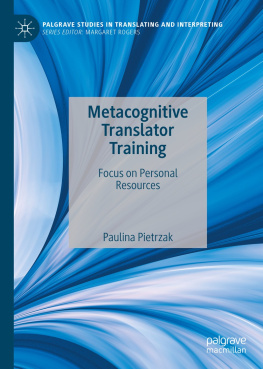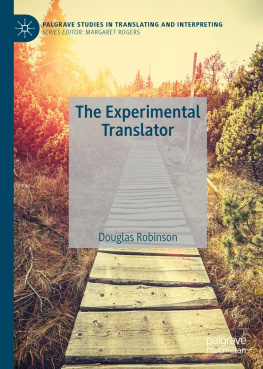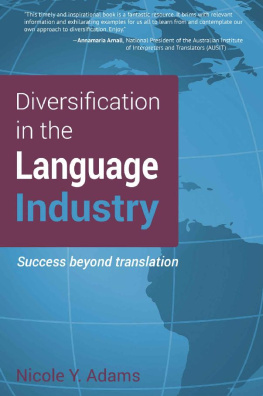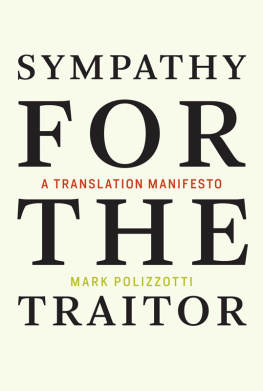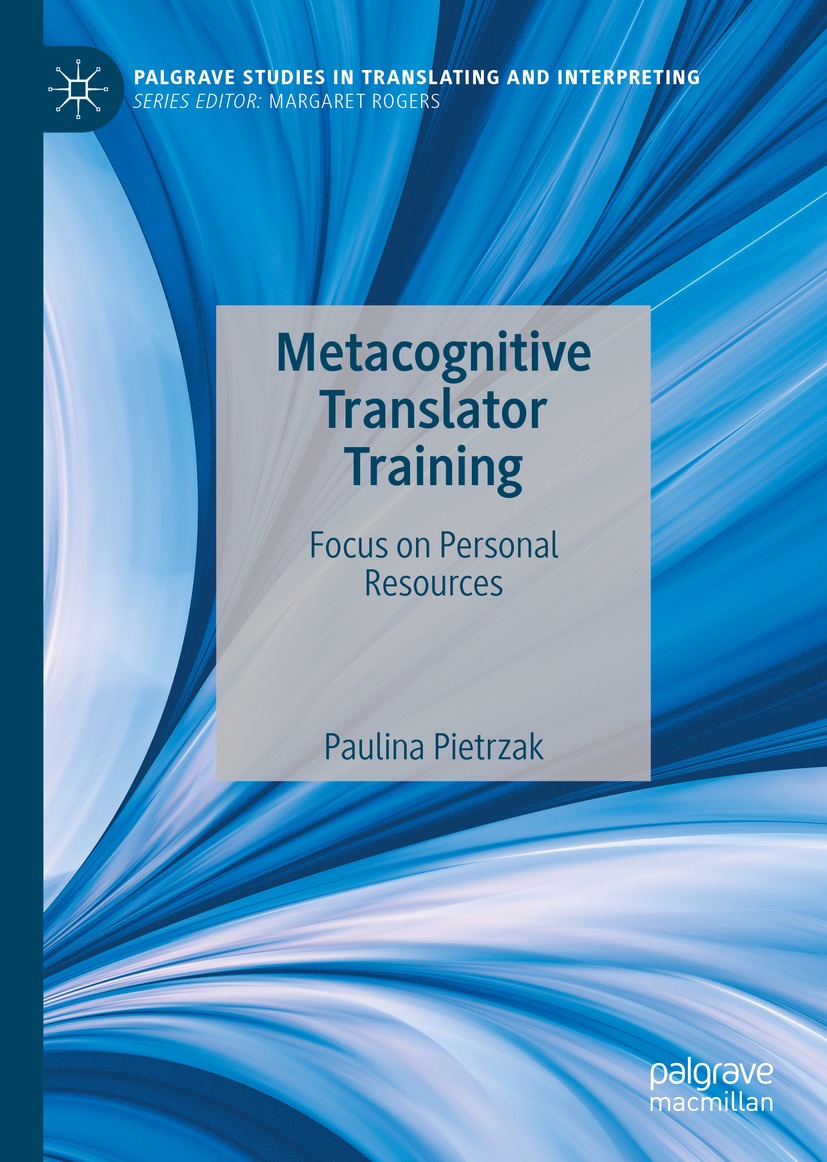Palgrave Studies in Translating and Interpreting
Series Editor
Margaret Rogers
School of Literature and Languages, University of Surrey, Guildford, UK
This series examines the crucial role which translation and interpreting in their myriad forms play at all levels of communication in todays world, from the local to the global. Whilst this role is being increasingly recognised in some quarters (for example, through European Union legislation), in others it remains controversial for economic, political and social reasons. The rapidly changing landscape of translation and interpreting practice is accompanied by equally challenging developments in their academic study, often in an interdisciplinary framework and increasingly reflecting commonalities between what were once considered to be separate disciplines. The books in this series address specific issues in both translation and interpreting with the aim not only of charting but also of shaping the discipline with respect to contemporary practice and research.
More information about this series at https://link.springer.com/bookseries/14574
Paulina Pietrzak
Metacognitive Translator Training
Focus on Personal Resources

Logo of the publisher
Paulina Pietrzak
University of d, d, Poland
Palgrave Studies in Translating and Interpreting
ISBN 978-3-030-97037-6 e-ISBN 978-3-030-97038-3
https://doi.org/10.1007/978-3-030-97038-3
Springer Nature Switzerland AG 2022
This work is subject to copyright. All rights are solely and exclusively licensed by the Publisher, whether the whole or part of the material is concerned, specifically the rights of translation, reprinting, reuse of illustrations, recitation, broadcasting, reproduction on microfilms or in any other physical way, and transmission or information storage and retrieval, electronic adaptation, computer software, or by similar or dissimilar methodology now known or hereafter developed.
The use of general descriptive names, registered names, trademarks, service marks, etc. in this publication does not imply, even in the absence of a specific statement, that such names are exempt from the relevant protective laws and regulations and therefore free for general use.
The publisher, the authors and the editors are safe to assume that the advice and information in this book are believed to be true and accurate at the date of publication. Neither the publisher nor the authors or the editors give a warranty, expressed or implied, with respect to the material contained herein or for any errors or omissions that may have been made. The publisher remains neutral with regard to jurisdictional claims in published maps and institutional affiliations.
Cover illustration: Marina Mazitova / Alamy Stock Vector
This Palgrave Macmillan imprint is published by the registered company Springer Nature Switzerland AG
The registered company address is: Gewerbestrasse 11, 6330 Cham, Switzerland
Preface
This book originated out of my experience not only in translation services but also in translator training. Many observations made in this volume relate to both discussions with professionals and reflections from students. The crucial question behind the book was how to effectively shape the educational reality that translation students experience. It stemmed from the need for a holistic approach, taking into account not only translation-related competences but also metacognitive skills and market conditions that provided the drive for studying translator education retrospectively from the professional perspective of future career development. Conversations and contacts with translators and translator educators in Poland and abroad, together with the data research reported in this monograph, can be an indication that at least some of the issues raised are directly challenging to translator education.
The book explores new developments and objectives in translator education with the main focus on metacognitive aspects of both translating and learning to become a translator. The primary aim is to discuss the elusive and complex notion of metacognition within the framework of translation studies, examining the nature and role of metacognitive skills (such as self-regulation , self- reflection , self-monitoring, self-assessment and self-feedback ) in the process of translation and translator training .
To this end, the book reports on an exploratory study of translation graduates and their self-perceived personal resources, paying particular attention to the effects of metacognitive awareness on their professional development. The data collected and analysed in the study shows that, despite the growing demand for translation services and advancements in translation technology, there are still a large number of translation graduates who decide not to become professional translators. The findings show a number of reasons why they choose different career paths, as well as the correlations between their self-concept and their professional development.
Moreover, the book shows possible ways of introducing metacognitive practice in the translation classroom and exemplifies self-regulatory activity here or in any other translator training environment. Taking a transformative stance on learning, it discusses tools that offer students structured opportunities to use their metacognitive skills to analyse, monitor and evaluate their own learning. Given that strategic aspects of translator competence go beyond mere language transfer and involve adaptability to the forever changing situation in the translation market, the need arises for translator educators to foster students metacognitive awareness through activating their personal resources and empowering them to meet the market demands of the postpandemic economic future. The results of the study indicate that metacognitive awareness and self-concept clearly contribute to a successful and satisfying career in the translation industry, by laying the foundations for flexible professional responses to changing job profiles in translation.
Notwithstanding my full responsibility for this manuscript, I am pleased to recognise the extent to which this work relies on the insightful help of the editor of the series. I would like to extend my words of gratitude to Professor Margaret Ann Rogers, for her guidance in the revision process.
Paulina Pietrzak
d, Poland
Contents
List of Figures
List of Tables
The Author(s), under exclusive license to Springer Nature Switzerland AG 2022
P. Pietrzak Metacognitive Translator Training Palgrave Studies in Translating and Interpreting https://doi.org/10.1007/978-3-030-97038-3_1
1. Introduction
Paulina Pietrzak
(1)
University of d, d, Poland
The aim of this book is to contribute to the discussion on metacognitive aspects of translation by addressing related questions and challenges of translation pedagogy. With respect to contemporary market demands, the book discusses translator education as related not only to the nature of the translation process but also to translation service provision. The required professional profiles are changing rapidly and the current market challenges are difficult to deal with for translators whose competence is out of step with demand. The question arises about the implications of these changes in local and global markets for translator education and for future translators.

